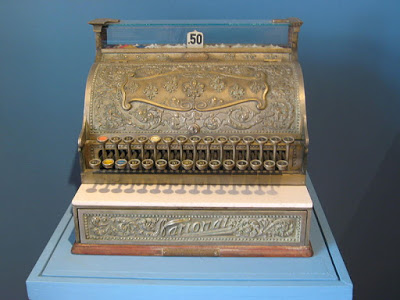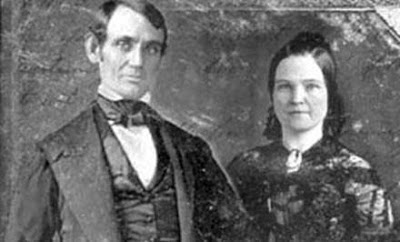- Get link
- X
- Other Apps
1650 William III of England was born in The Hague in the Dutch Republic on November 4, 1650. He was the only child of William II, Prince of Orange and Mary, the daughter of King Charles I of England. William's father died eight days before he was born, meaning he became the Sovereign Prince of Orange at the moment of his birth. In 1688 he landed in England with a Dutch fleet starting the Glorious Revolution. He ruled England, Scotland, and Ireland as King William III until his death in 1702.
1677 The 15-year-old Mary (future Mary II of England) married her cousin the Protestant Stadtholder of Holland, William of Orange on November 4, 1677. The ceremony took place in St. James's Palace and was officiated by Bishop Henry Compton. Mary's personable and kind nature made her popular with the Dutch population, and her marriage to a Protestant prince was popular in Britain.
1737 The Real Teatro di San Carlo (Royal Theatre of Saint Charles), known today as simply the Teatro di San Carlo, is an opera house in Naples, Italy. It is located adjacent to the central Piazza del Plebiscito, and connected to the Royal Palace. The Teatro di San Carlo is the oldest continuously active venue for public opera in the world, opening on November 4, 1737.
 |
| Portrait attributed to Thomas Murray, c. 1690 |
1677 The 15-year-old Mary (future Mary II of England) married her cousin the Protestant Stadtholder of Holland, William of Orange on November 4, 1677. The ceremony took place in St. James's Palace and was officiated by Bishop Henry Compton. Mary's personable and kind nature made her popular with the Dutch population, and her marriage to a Protestant prince was popular in Britain.
1737 The Real Teatro di San Carlo (Royal Theatre of Saint Charles), known today as simply the Teatro di San Carlo, is an opera house in Naples, Italy. It is located adjacent to the central Piazza del Plebiscito, and connected to the Royal Palace. The Teatro di San Carlo is the oldest continuously active venue for public opera in the world, opening on November 4, 1737.
1791 In the most severe defeat ever suffered by U.S. forces at the hands of Native Americans, the Western Confederacy won a major victory at the Battle of the Wabash near present-day Fort Recovery in Ohio on November 4, 1791. Over one thousand Native Americans attacked at dawn taking the opposing force of about 1,000 Americans led by General Arthur St. Clair by surprise. Of the 1,000 officers and men that St. Clair led into battle, only 24 escaped unharmed.
1842 Abraham Lincoln married Mary Todd on November 4, 1842 at the Springfield, Illinois, mansion of Mary's married sister. Mary was a hysterical and madly jealous wife and she refused her husband to receive female visitors alone. She was the first presidential wife to be referred to as the First Lady. Mary was so disliked in her day she was nicknamed the “she-wolf”.
1847 After the sudden death of his sister Fanny in May 1847, German composer Felix Mendelssohn's health rapidly deteriorated, and he died in Leipzig on November 4, 1847 after a series of strokes.
Mendelssohn's funeral was held at the Paulinerkirche, Leipzig, and he was buried at the Dreifaltigkeitsfriedhof I in Berlin-Kreuzberg. The pallbearers included his fellow composer Robert Schumann
1847 Chloroform is a colorless toxic chemical substance, which with an acrid, sickly sweet smell and taste, sends people off to sleep as they inhale. Its properties were discovered by Scottish obstetrician Dr James Simpson, one of Queen Victoria's private physicians. During an experiment with friends on November 4, 1847, Miss Petrie, Simpson's niece, tried chloroform. She fell asleep soon after inhaling it while singing the words, "I am an angel!"
1842 Abraham Lincoln married Mary Todd on November 4, 1842 at the Springfield, Illinois, mansion of Mary's married sister. Mary was a hysterical and madly jealous wife and she refused her husband to receive female visitors alone. She was the first presidential wife to be referred to as the First Lady. Mary was so disliked in her day she was nicknamed the “she-wolf”.
1847 After the sudden death of his sister Fanny in May 1847, German composer Felix Mendelssohn's health rapidly deteriorated, and he died in Leipzig on November 4, 1847 after a series of strokes.
Mendelssohn's funeral was held at the Paulinerkirche, Leipzig, and he was buried at the Dreifaltigkeitsfriedhof I in Berlin-Kreuzberg. The pallbearers included his fellow composer Robert Schumann
1847 Chloroform is a colorless toxic chemical substance, which with an acrid, sickly sweet smell and taste, sends people off to sleep as they inhale. Its properties were discovered by Scottish obstetrician Dr James Simpson, one of Queen Victoria's private physicians. During an experiment with friends on November 4, 1847, Miss Petrie, Simpson's niece, tried chloroform. She fell asleep soon after inhaling it while singing the words, "I am an angel!"
1865 Walt Whitman’s poem “O Captain! My Captain!,” which commemorates the death of President Abraham Lincoln, was first published in The Saturday Press on November 4, 1865. It was an early release before it appeared in Whitman’s 1867 collection Leaves of Grass. Whitman wrote the poem as an elegy for Lincoln, using an extended metaphor of a ship’s captain who dies just as a voyage ends, reflecting the nation’s loss at the end of the Civil War.
 |
| Whitman's autograph corrections for a new edition of "O Captain! My Captain!" |
1875 The flag of Tonga was adopted on November 4, 1875 after being officially enshrined into the nation's constitution. It holds the distinction of being one of the oldest continuously used national flags in the world. This flag features a red field with a white canton in the upper hoist-side corner. Inside the canton, there is a distinctive red cross with a white border, which is known as the Tongan cross.
1879 James J. Ritty, owner of a tavern in Dayton, Ohio, patented the cash register on November 4, 1879, after he’d grown tired of his staff stealing his money. The first registers were entirely mechanical, without receipts. The employee was required to ring up every transaction on the register, and when the total key was pushed, the drawer opened and a bell would ring, alerting the manager to a sale taking place.
 |
| Old National Cash Register at Mexico City's Museo de la Secretaría de Hacienda y Crédito Público |
1882 Robert L. "Bob" Douglas, the founder of The New York Renaissance basketball team was born on November 4, 1882. Nicknamed the "Father of Black Professional Basketball", Douglas owned and coached the Rens from 1923 to 1949, guiding them to a 2,318-381 record. He was inducted into the Basketball Hall of Fame as a contributor on February 5, 1972, the first African American to be enshrined.
1890 Initially steam-powered, the London Underground began electrifying some of its lines in the early 1890s. Its first electric underground railway line was between Stockwell, South London and King William Street (now Bank) opened on November 4, 1890. By 1896, it was fully electrified.
1899 Sigmund Freud published Interpretation Of Dreams on November 4, 1899 in which he argued that understanding dreams can give an insight into our personality. It was slow to take off, the first edition selling only 351 copies in its first six years. However, in time it became the book that gave Freud worldwide recognition.
1903 Panama achieved independence on November 3, 1903 with the help of the US. The Panamanian flag day, known as "Día de la Bandera" in Spanish, is celebrated on November 4, one day after the country's separation from Colombia.
1912 On November 4, 1912, Woodrow Wilson became the 28th President of the United States. He won with 42 percent of the popular vote and 435 of the 531 electoral votes against the incumbent president William Howard Taft. Wilson was one of the two Democrats (alongside Grover Cleveland) elected to the presidency in the era of Republican political domination dating from 1861 to 1933.
1916 American broadcast journalist Walter Cronkite was born on November 4, 1916. The term ‘anchor’, a central and authoritative news presenter, was coined to describe his coverage of the 1952 presidential election.
1922 On November 4, 1922, during British archaeologist Howard Carter's archaeological dig in the Valley of the Kings in Luxor, Egypt, his waterboy stumbled across some steps leading under the desert surface. Carter had the steps partially dug out until the top of a mud-plastered doorway was found. Three months later, Carter opened the sealed doorway and found they led to the burial chamber of the ancient Egyptian Boy King Tutankhamun.
1924 Nellie Tayloe Ross of Wyoming was elected the first female governor in the United States on November 4, 1924, when she succeeded her late husband William B. Ross. Nellie Ross was a Democrat and went on to serve as the Governor of Wyoming from 1925 to 1927.
1958 On November 4, 1958 Angelo Roncalli was elected pope. He chose his father's name, John, and became Pope John XXIII thus making his views known on the disputed legitimacy of the 15th century Pope John XXIII. He was aged seventy-six when elected and was considered a caretaker pope but instead he ushered in a new era in the Roman Catholic Church with Vatican II.
1960 When Dr. Jane Goodall observed a chimpanzee using a grass stalk to extract termites from a termite hill at the Kasakela Chimpanzee Community in Tanzania on November 4, 1960, it was the first recorded case of tool use by animals.
1965 Dickey Chapelle an American photojournalist and war correspondent, was killed in action by a landmine on November 4, 1965, during the Vietnam War. She was the first female war correspondent killed in Vietnam. Chapelle was a highly respected and experienced war correspondent. She had covered World War II and the Korean War, and she was one of the first female journalists to be accredited by the Pentagon to cover the Vietnam War.
1966 The Arno River flooded Florence on November 4, 1966, to a maximum depth of 22 feet (6.7 metres), killing 101 people and leaving thousands homeless. Millions of masterpieces of art and rare books were damaged or destroyed. It is considered the worst flood in the city's history since 1557.
1979 In 1975, Marion Stokes, a Philadelphia woman purchased a Betamax magnetic videotape recorder. From the outset of the Iran Hostage Crisis on November 4, 1979, she began taping whatever was on television and didn't stop until her death in 2012. The 71,000 VHS and Betamax tapes she made are the most complete collection preserving this era of TV.
1986 On November 4, 1986, 12 members of a Florida jury got stuck in the courthouse elevator for 20 minutes. The jurors were hearing a case against the Otis elevator company. The jury eventually found Otis elevator company liable for the plaintiff's injuries and awarded him a significant damages award.
2001 The first Harry Potter film, Harry Potter and the Philosopher's Stone, had its world premiere in London on November 4, 2001. In total, Daniel Radcliffe went through 160 pairs of prop glasses by the end of the Harry Potter series.
2008 Barack Obama became the first African American to be elected president of the United States on November 4, 2008. He defeated Republican candidate John McCain in the election by a wide electoral majority of 365 to 173. The popular vote (based on the total number of votes across the country) was closer, with Obama winning 53%, McCain 46%.


Comments
Post a Comment